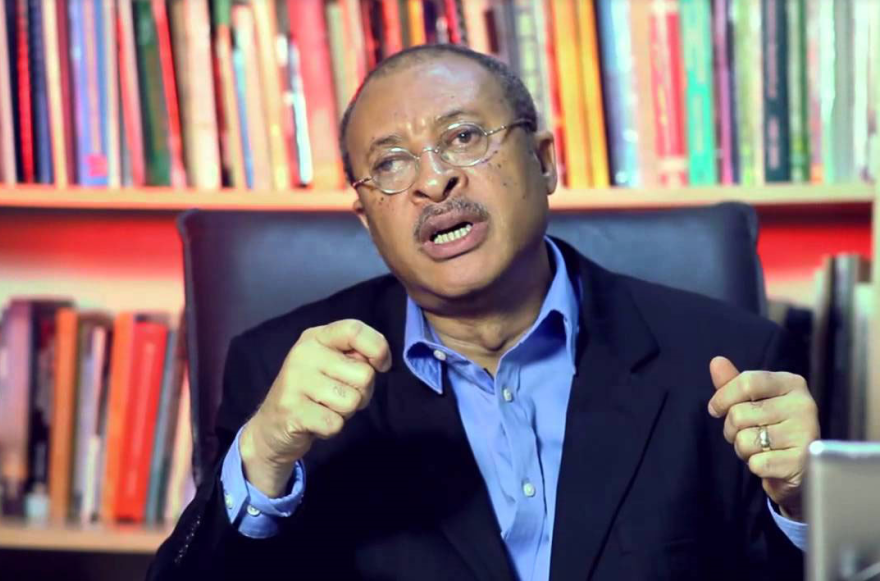Pat Utomi, a Professor of Political Economics has warned that Nigeria runs the risk of entering another debt trap if it keeps borrowing to fill the needs of recurring expenditure spending. He urged that Nigeria develops a clear national strategy, which looks at how growth can take place in a sustainable manner in this economy.
Utomi disclosed this in an interview with Channels TV on Sunday, following President Muhammadu Buhari’s letter to the Senate requesting to borrow over $4 billion from external lenders.
READ: Nigeria records debt service to revenue ratio of 99% in first quarter of 2020
What Pat Utomi said
Utomi said, “Our country is going through a very trying period. This is a time for statesmen to emerge, not people arguing partisan position on things.
“The Nigerian economy, is not growing in any way or shape that can accommodate its needs, population growth, rates, location on scale of poor countries. It means that in terms of absolute numbers of people living in poverty, that this is one of the most terrible places to live in on earth.”
Utomi said that even though the borrowings are sometimes justifiable, there was cause for concern seeing how much of Nigeria’s revenue goes into debt servicing.
READ: Nigeria is falling into China’s debt trap
“In terms of statistic’s being said, yes, in an absolute sense, the fact of borrowing $4 billion is not necessarily something that will kill Nigeria, even though if you look at how much of our revenues going into servicing debt, you have to worry.
“However, there is a converse point here. This country needs to grow like crazy, and it cannot grow unless you invest. The real issue is the targeting of borrowed funds.
“Am I convinced that the targeting is enough to drive the kind of growth that will facilitate the economy to grow in a sustainable manner? I have not been given enough information to believe that it is the case.”
READ: Nigeria’s public debt rises to N35.465 trillion as at June 2021
He added that Nigeria has been in this position before, back in the 70s, when General Obasanjo was head of state.
“One of the reasons Nigeria is where it is today, is that oil price dropped during the heat of last year, compounded by supply chain challenges brought about by the lockdown, which led to revenue shortfall of a significant nature because we have failed to do something we said we are doing, which is to diversify the base of the Nigerian economy.
“Do I see the plans that these borrowings will facilitate the diversification of the economy? My straight answer is No, I do not see the plan.
“We need to develop a clear nation strategy, which looks at how growth can take place in a sustainable manner in this economy, then we can borrow, twice or three times as much as we are borrowing, and I won’t be afraid,” he explained.
READ: Nigeria’s debt sentence: The burden of the Port Harcourt refinery
In case you missed it
Recall Nairametrics reported last week that President Muhammadu Buhari sent a letter to the Senate requesting to borrow over $4 billion from external lenders to fund infrastructure development.
The President sent the letter to the Senate on Tuesday citing European banks including Credit Suisse Group and Standard Chartered Bank as private lenders. The loans range from a grant of $125 million to a 710 million Euros loan will be sourced from the World Bank, French Development Agency, China-Exim Bank and International Fund for Agricultural Development.
“The projects listed in the external borrowing plan are to be financed through sovereign loans from the World Bank, French Development Agency, EXIM Bank and IFAD in the total sum of $4,054,476,863 and €710 million and grant components of $125 million,” Buhari said.













